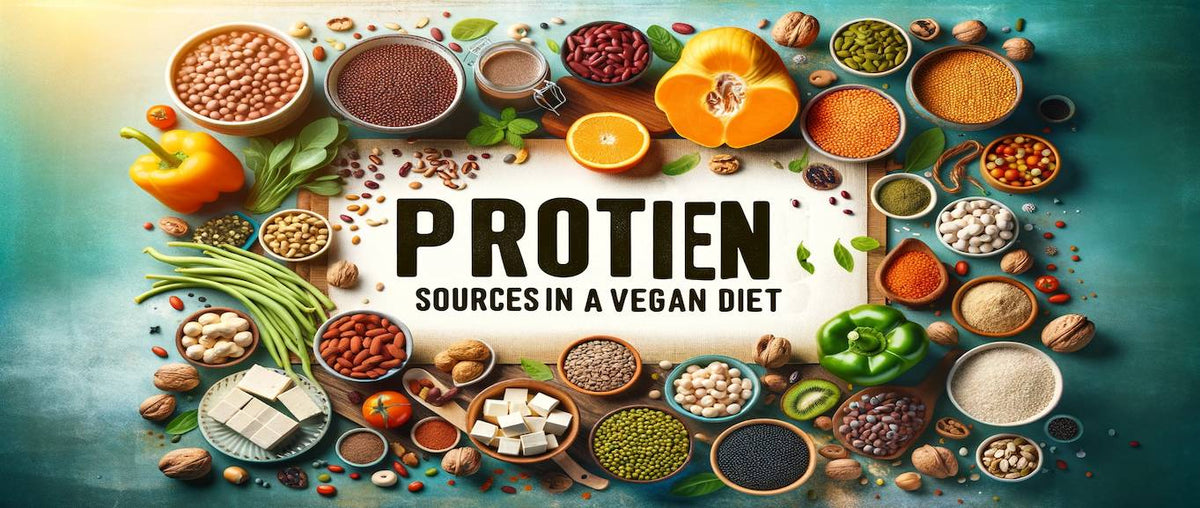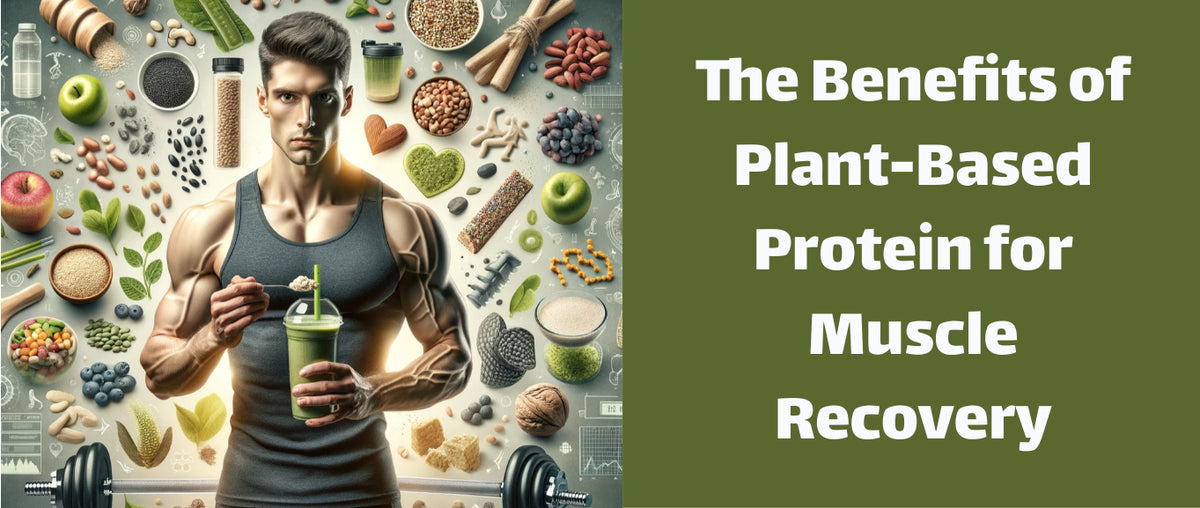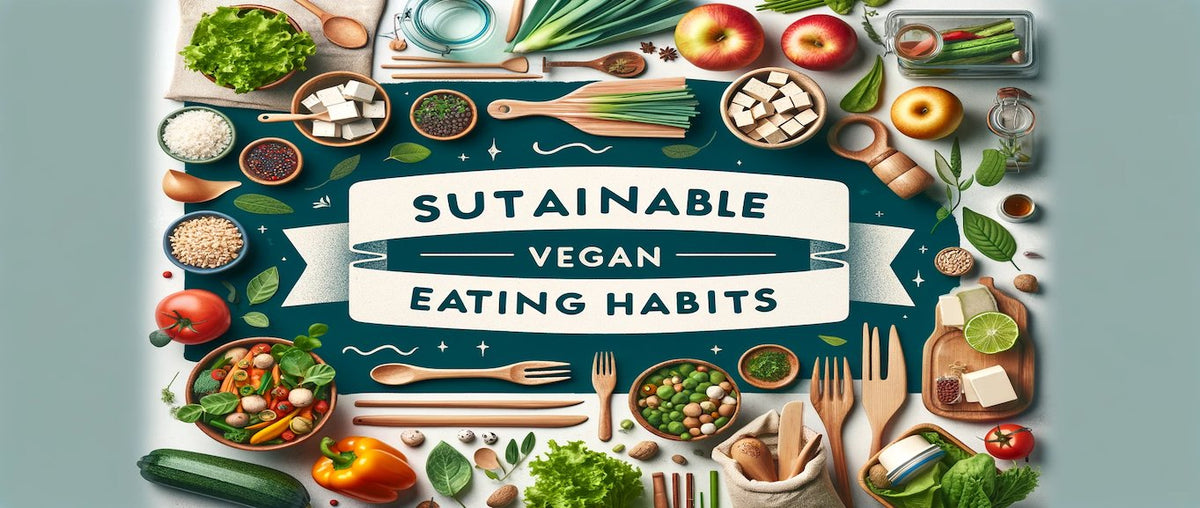Protien Sources in a Vegan Diet
Protien Sources in a Vegan Diet are the building blocks of life, essential for the growth, repair, and maintenance of all body tissues. Their role extends beyond mere structure to the vital functions of regulating body processes, forming antibodies, and serving as enzymes and hormones. For vegans, understanding and navigating the landscape of plant-based protein sources is crucial not only for maintaining health but also for supporting an active lifestyle.
This blog explores the vital aspects of protein in a vegan diet—from its fundamental importance to the body to the best plant-based sources and the nuances of protein consumption for vegan athletes. Whether you are a seasoned vegan or someone considering plant-based nutrition, this guide will provide you with comprehensive insights into how to effectively incorporate protein into your diet, ensuring you meet all your nutritional needs without compromising on taste or variety. Join us as we delve into the world of proteins in the vegan diet, uncovering the power and potential of plant-based nutrition.
Key Takeaways
- Diverse Protein Sources: A vegan diet offers a wide range of protein sources, including legumes, grains, nuts, seeds, and soy products.
- Adequate Protein Intake: It's entirely possible to meet and exceed daily protein requirements with a well-planned vegan diet.
- Health Benefits: Plant-based proteins often come with additional health benefits like fiber, vitamins, and essential fatty acids.
- Environmental Impact: Choosing vegan protein sources can have a positive impact on the environment, reducing the carbon footprint compared to animal-based proteins.
- Culinary Variety: Vegan protein sources are incredibly versatile in cooking, offering opportunities for a wide range of delicious and nutritious meals.
Understanding Protein and Its Importance
Why Do We Need Protein?
Protein, comprising a chain of amino acids, is a crucial macronutrient for every cell in the human body. It plays a pivotal role in building and repairing tissues, producing enzymes and hormones, and supporting immune function. For vegans, sourcing protein from plant-based foods is essential for muscle health, metabolic processes, and overall well-being.
How Much Protein Should I Eat?
The Recommended Dietary Allowance (RDA) for protein is 0.8 grams per kilogram of body weight. This amount varies depending on age, sex, physical activity level, and health goals. For example, athletes or those looking to build muscle mass may need more protein. It's crucial for vegans to plan their diet to include diverse protein sources to meet their daily needs effectively.
Can You Eat Too Much Protein?
While protein is vital, it's possible to consume too much, which might lead to health issues. Excessive protein intake, particularly from animal sources, has been linked to kidney strain, dehydration, and increased cancer risk. However, overconsumption is generally less of a concern with plant-based proteins. Vegans should still monitor their intake, ensuring they get enough but not overdoing it, especially if relying on protein supplements.
Benefits of Plant-Based Protein
Plant-based proteins offer numerous health benefits. They are typically lower in calories and saturated fats than animal proteins, helping to manage weight and reduce heart disease risk. They also provide essential fibers and nutrients absent in animal products. Furthermore, plant based diets have a lower environmental footprint, making them a sustainable choice for the planet.
Protein in a Vegan Athlete's Diet
Can You Get Enough Protein as a Vegan Athlete?
Many may wonder if a vegan diet provides sufficient protein for athletes. The answer is a resounding yes. Vegan athletes can meet their protein needs by consuming a variety of plant-based protein sources. Foods like lentils, tofu, quinoa, and nuts are not only rich in protein but also offer a complete amino acid profile when combined correctly. Planning and knowledge about protein-rich vegan foods are key for athletes to maintain muscle strength and overall performance.
Optimal Protein Sources for Vegan Athletes
For vegan athletes, the focus should be on protein sources that also provide other essential nutrients. Some top choices include:
- Tofu and tempeh: High in protein and versatile for various dishes.
- Legumes: Beans, lentils, and chickpeas offer a substantial protein boost.
- Quinoa and oats: Grains that provide both protein and carbohydrates.
- Nuts and seeds: Almonds, chia seeds, and hemp seeds are not only protein-rich but also great sources of healthy fats and omega-3s.

Diverse Vegan Protein Sources
Seitan: The Wheat-Meat Protein
Seitan, often known as 'wheat meat,' is a remarkable protein source for vegans. Originating from wheat gluten, it offers approximately 75 grams of protein per 3.5 ounces. Its meat-like texture makes it a popular choice in vegan cooking, adaptable to various recipes from stir-fries to grilling. Seitan, while high in protein, should be complemented with other protein sources, as it does not provide a complete amino acid profile.
Tofu, Tempeh, and Edamame: The Soy Powerhouses
Soy-based products like tofu, tempeh, and edamame are staples in a vegan diet for their high protein content and versatility.
- Tofu: Derived from soy milk, tofu is a versatile ingredient that can be used in a myriad of dishes, providing about 17 grams of protein per 3.5-ounce serving.
- Tempeh: Made from fermented soybeans, tempeh offers a firmer texture and about 20 grams of protein per 3.5-ounce serving.
- Edamame: Young soybeans, are a snackable option with around 12 grams of protein per cup.
These soy products are not only rich in protein but also provide essential amino acids, making them excellent meat substitutes in a vegan diet.
Lentils: A Versatile Protein Source
Lentils are a powerhouse in the vegan diet, offering about 9 grams of protein per half-cup serving. They are not only rich in protein but also in dietary fiber, iron, and folate. Lentils can be incorporated into a variety of dishes, from traditional Indian dahls to hearty soups and fresh salads. Their versatility and nutritional profile make them an excellent staple in any vegan kitchen.
Beans: The Heart of Plant-Based Protein
Beans are another essential source of protein for vegans, with different varieties offering varying levels of protein. For example:
- Black beans: Provide about 8 grams of protein per half-cup.
- Chickpeas: Also known as garbanzo beans, offer 20 grams per half-cup.
- Kidney beans: Another great option with 7 grams of protein per half-cup.
Beans are also rich in other nutrients like fiber, iron, and potassium, making them a healthful choice for a balanced vegan diet.
Nutritional Yeast: A Vegan Flavor Powerhouse
Nutritional yeast is a staple in the vegan kitchen, praised not only for its protein content but also for its cheesy flavor, making it a perfect substitute for Vegan Cheese. One tablespoon of nutritional yeast provides about 8 grams of complete protein, along with B-vitamins, making it an excellent addition to a vegan diet. It's incredibly versatile and can be sprinkled over popcorn, stirred into soups, or used in making vegan mayo and Cashew Butter, enhancing flavor while boosting nutritional content.
Spelt and Teff: Ancient Grains for Modern Diets
Spelt and teff, ancient grains, are gaining popularity in the vegan food products market for their high protein content and nutritional benefits. A cup of cooked spelt provides about 10.6 grams of protein, while teff offers a comparable amount. These grains are not just protein-rich but also excellent sources of fiber and minerals, making them a healthy addition to plant based foods. Their versatility allows them to be used in a variety of dishes, from hearty breads to nourishing porridges, aligning with the increasing demand for diverse and healthful plant based products .
Hemp Seeds: A Nutritional Powerhouse in the Vegan Diet
Hemp seeds are a true gem in the realm of vegan products, offering about 9 grams of protein per ounce. These small seeds are not only a great source of protein but also contain essential fatty acids, making them a perfect ingredient for vegan butter and cashew butter. They can be sprinkled on salads, blended into vegan mayo, or added to smoothies, offering a nutritious boost to various plant-based foods.
Green Peas: More Than Just a Veggie
Often overlooked, green peas are a valuable protein source in a vegan shop. A cup of cooked green peas contains about 8.6 grams of protein, along with significant amounts of fiber, vitamins, and minerals. They're a versatile ingredient that can be added to pastas, soups, and even cholesterol-free foods. Their natural sweetness and nutritional profile make them a fantastic addition to any plant based diet.

Chia Seeds: The Tiny Nutrient Giants
Chia seeds have gained immense popularity in the vegan shop for their nutrient density, especially as a protein source. With approximately 5 grams of protein per tablespoon, these tiny seeds are a fantastic addition to a plant based diet. Beyond protein, they are rich in omega-3 fatty acids, fiber, and antioxidants. Chia seeds can be used in various vegan products like smoothies, vegan mayo, and as a thickening agent in vegan cheese recipes. Their ability to absorb water and form a gel-like texture also makes them an excellent egg substitute in vegan baking, enhancing the nutritional profile of plant-based foods.
Nuts, Nut Butter, and Other Seeds: Protein and Healthy Fats Combined
Nuts and seeds, including almond, cashew, and flaxseeds, are not only high in protein but also provide healthy fats and fibers, essential for a balanced vegan diet.
- Almonds offer about 6 grams of protein per ounce, making them a great snack or an ingredient in plant-based cheese.
- Cashew butter is another excellent source, perfect for spreads or to enrich the flavor of vegan products.
- Pumpkin seeds are also protein-rich, with about 5.3 grams per ounce, suitable for topping salads or as an addition to cholesterol-free foods.
These versatile ingredients can be easily incorporated into fat-free butter recipes, snacks, and other plant-based products, enhancing both taste and nutritional value.
Protein-Rich Fruits and Vegetables: An Overlooked Category
In the realm of vegan food products, fruits and vegetables are often overlooked as protein sources. However, certain produce can contribute significantly to protein intake in a plant based diet. For instance:
- Spinach and kale offer about 0.6 grams of protein per cooked cup, making them great for salads or smoothies.
- Broccoli provides 2.8 grams per cup and is versatile in dishes from stir-fries to vegan cheese bakes.
- Fruits like blackberries and guavas also contribute to protein intake, adding variety to plant-based foods.
These natural foods not only offer protein but are also packed with vitamins, minerals, and antioxidants, making them a valuable part of a cholesterol-free diet.
Also Read
High Protein Grains: Quinoa, Barley, and More
Grains are a fundamental aspect of plant-based products, and some are surprisingly rich in protein.
- Quinoa offers about 8 grams of protein per cooked cup, alongside essential amino acids, making it an excellent base for vegan shop recipes.
- Barley also provides a good amount of protein, perfect for hearty soups and stews.
- Other grains like oats and farro also contribute to daily protein needs, making them suitable for breakfast options in a vegan diet or as ingredients in fat-free butter and spreads.
These grains are not just nutritious but also adaptable in various culinary preparations, enhancing the appeal and nutritional value of vegan products.
The Rise of Plant-Based Meat Alternatives
The evolution of plant-based products like vegan cheese and meat substitutes has transformed the protein options available to vegans. Products such as Beyond Meat and Impossible Burger are not just popular in the vegan shop; they have entered mainstream markets, offering high protein content and flavors similar to traditional meat. These alternatives are typically made from soy, peas, or wheat protein, making them suitable for those seeking cholesterol-free foods and plant-based foods. They are not only a boon for vegan food products but also for anyone looking to reduce meat consumption for health or environmental reasons.
The Importance of a Balanced Vegan Diet
While focusing on protein sources, it's crucial to maintain a balanced diet. A well-planned vegan diet should include a variety of foods to ensure all nutritional needs are met. This includes incorporating different types of proteins, such as plant-based cheese, vegan butter, cashew butter, and fat-free butter, along with whole grains, fruits, vegetables, nuts, and seeds. It's about creating a harmonious balance that sustains and nourishes the body, aligning with the principles of plant-based products and a healthy lifestyle.
If you are a vegan, looking to dine something vegan in your city, check out our list of vegan restaurants in India.










